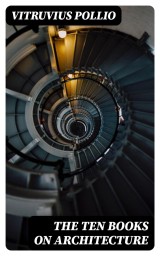Details

The Ten Books on Architecture
|
CHF 2.00 |
|
| Verlag: | Digicat |
| Format: | EPUB |
| Veröffentl.: | 28.05.2022 |
| ISBN/EAN: | 8596547021445 |
| Sprache: | englisch |
| Anzahl Seiten: | 287 |
Dieses eBook enthält ein Wasserzeichen.
Beschreibungen
In his magnum opus 'The Ten Books on Architecture,' Vitruvius Pollio delves into the principles of architecture, exploring topics such as urban planning, building materials, and design aesthetics. Written in a clear and practical style, this ancient Roman text serves as a comprehensive guide for aspiring architects, offering insights into the technical and artistic aspects of the profession. Vitruvius draws on his own experiences as a military engineer to provide practical advice on construction techniques and structural stability, making this work a foundational text in the field of architecture. Set against the backdrop of ancient Roman society, the book reflects the architectural practices and values of the time, while also offering timeless principles that continue to influence architectural theory today. Vitruvius Pollio's deep knowledge of engineering and design shines through in his meticulous explanations and detailed illustrations, making 'The Ten Books on Architecture' a must-read for anyone interested in the history and theory of architecture.
Marcus Vitruvius Pollio, popularly known as Vitruvius, was an esteemed Roman architect and engineer of the 1st century BCE, whose tenure flourished during the reign of Emperor Augustus. His literary legacy, 'De Architectura', conventionally translated to 'The Ten Books on Architecture', is his most formidable contribution to architectural theory and history (Vitruvius, 1st century BCE). This treatise is a comprehensive manual on Roman architecture, engineering, and city planning, embodying both practical guidelines and theoretical principles derived from earlier Greek works. Not merely a descriptive account, Vitruvius's opus delves into the underlying philosophies of architecture, emphasizing the central tenets of 'firmitas' (durability), 'utilitas' (utility), and 'venustas' (beauty) – principles that would resonate through the annals of architectural discussion for centuries to come. His work distinguished itself by embracing a holistic integration of disciplines, reflecting the Roman proclivity for systematization and encompassing subjects as varied as acoustics, astronomy, and the natural sciences within the architectural discourse. Revered not only as a source of knowledge on ancient building techniques and materials, but also as an enduring touchstone for the ethos of architectural practice, Vitruvius's insights have been analyzed, transliterated, and debated by scholars and practitioners alike, cementing his legacy as one of the seminal figures in the history of architecture (Rowland & Howe, 1999).
Diese Produkte könnten Sie auch interessieren:

Kuba - Kunst: Die Frau im Fokus künstlerischen Schaffens vom Ende der Kolonialzeit bis zur Gegenwart

von: Beate Talmon de Cardozo

CHF 23.00















